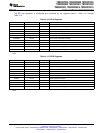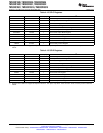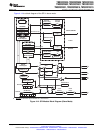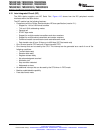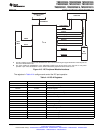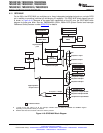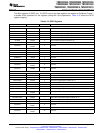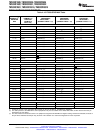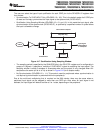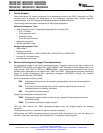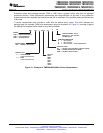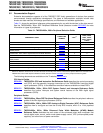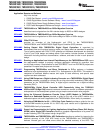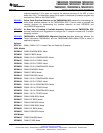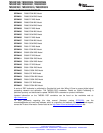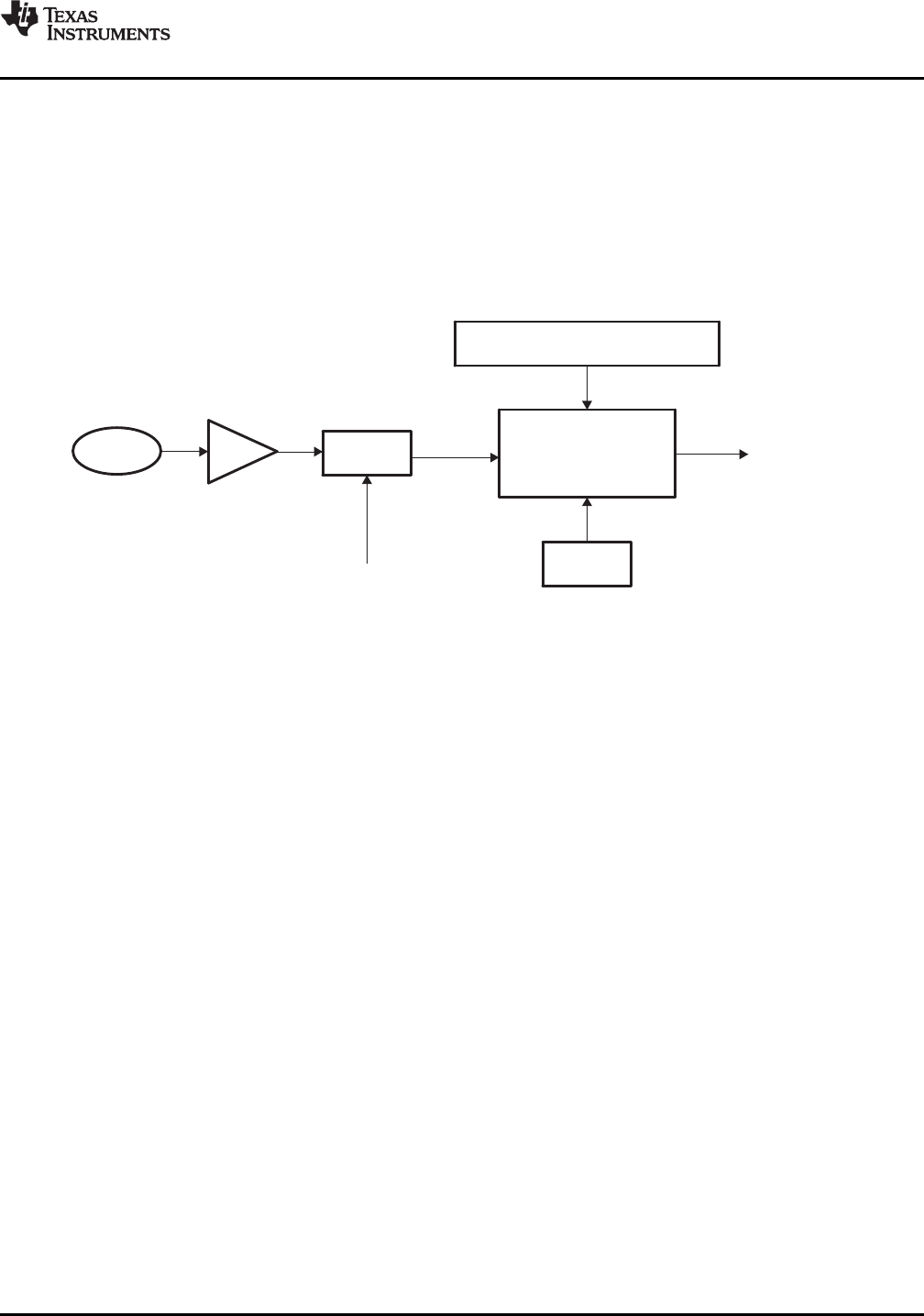
GPyCTRL Reg
SYNC
SYSCLKOUT
Qualification
Input Signal
Qualified By 3
or 6 Samples
GPIOx
Time between samples
GPxQSEL
Number of Samples
TMS320F2809, TMS320F2808, TMS320F2806
TMS320F2802, TMS320F2801, TMS320C2802
TMS320C2801, TMS320F28016, TMS320F28015
www.ti.com
SPRS230L–OCTOBER 2003–REVISED DECEMBER 2009
The user can select the type of input qualification for each GPIO pin via the GPxQSEL1/2 registers from
four choices:
• Synchronization To SYSCLKOUT Only (GPxQSEL1/2 = 0,0): This is the default mode of all GPIO pins
at reset and it simply synchronizes the input signal to the system clock (SYSCLKOUT).
• Qualification Using Sampling Window (GPxQSEL1/2 = 0,1 and 1,0): In this mode the input signal, after
synchronization to the system clock (SYSCLKOUT), is qualified by a specified number of cycles before
the input is allowed to change.
Figure 4-17. Qualification Using Sampling Window
• The sampling period is specified by the QUALPRD bits in the GPxCTRL register and is configurable in
groups of 8 signals. It specifies a multiple of SYSCLKOUT cycles for sampling the input signal. The
sampling window is either 3-samples or 6-samples wide and the output is only changed when ALL
samples are the same (all 0s or all 1s) as shown in Figure 6-12 (for 6 sample mode).
• No Synchronization (GPxQSEL1/2 = 1,1): This mode is used for peripherals where synchronization is
not required (synchronization is performed within the peripheral).
Due to the multi-level multiplexing that is required on the 280x device, there may be cases where a
peripheral input signal can be mapped to more then one GPIO pin. Also, when an input signal is not
selected, the input signal will default to either a 0 or 1 state, depending on the peripheral.
Copyright © 2003–2009, Texas Instruments Incorporated Peripherals 85
Submit Documentation Feedback
Product Folder Link(s): TMS320F2809 TMS320F2808 TMS320F2806 TMS320F2802 TMS320F2801 TMS320C2802
TMS320C2801 TMS320F28016 TMS320F28015



